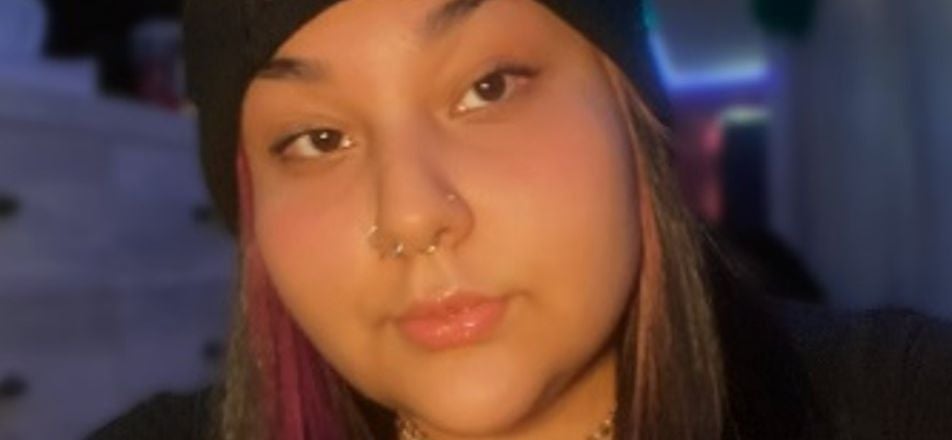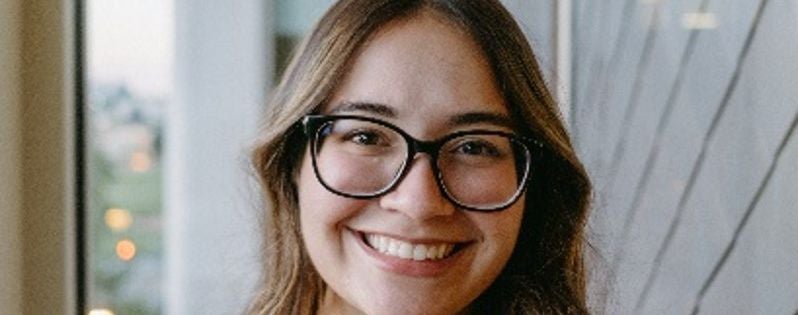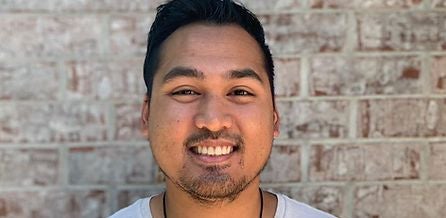Kornfeld Scholars & Student Showcase
Lewis F. Kornfeld (1916 – 2013) graduated from the University of Denver with a degree in English and journalism before serving in the Marines in World War II. He later joined Radio Shack as an advertising manager before eventually becoming its president during the nascent personal computer revolution of the mid-1970s. His commitment to DU and writing is reflected in his gift to the University to fund Kornfeld Scholars, a yearly scholarship of $8,000 to an outstanding first-year writer. Each year, the Executive Director of Writing selects one writer from a highly competitive pool of writers enrolled in WRIT xx22 and xx33 courses.
Kornfeld Scholarship Recipients

Juniper "RJ" Koelliker
Professor Jesse Stommel states, "Juniper is an amazing writer, precise, careful, but what makes Juniper's work stand out is the way it pushes on the boundaries of what writing can do to a reader. I was always moved by Juniper's work, to the point that I was left speechless at first, forced to grapple with it in a deep way. Juniper experiments relentlessly, playfully, making words do real work in the world."

Alexa Fonseca
Whatever the genre or topic, Alexa's writing captivates audiences. Her stories are among the best I have read in my many years as a teacher. In my "Rhetoric of Journalism" course, she mastered different styles typical of op-eds, satires, and features. her exceptional article about her father's immigrant experiences in the U.S. leads powerfully by depicting his attack by gangs as he walks home from school in New Jersey. Unexpectedly, a gangster's exclamation of "Hey, bro, wait. He helped me with my math homework" disperses the crowd. Alexa then unravels his immigrant journey: departure from Ecuador, looking after siblings while still a kid, marriage, military service, and a prestigious career with U.S. Space Command.

Maya Sifuentes
“Writing is a great passion of mine,” said Maya Sifuentes upon receiving the Kornfeld Scholarship. A Psychology major, Maya exemplifies excellence in writing through her creative and rhetorical effective turns of phrase. Professor Angela Sowa wrote that, “Maya demonstrated her open-mindedness and empathy both in her writing as well as in her feedback to other students in our class and approached every assignment, big and small, with creativity and curiosity.”

Ana Júlia Rodrigues Alves
A first-generation international student from Brazil, Ana Júlia Rodrigues Alves majored in Journalism and International Studies. Professor David Riche wrote, “She stands out not only for her creativity, empathy, and rhetorical savvy, but also for her sense of responsibility – her commitment to writing as a social action in pursuit of the greater good.” Ana Júlia has many contributions to the DU Clarion.

Angel Benton
Angel Benton entered DU after serving in the U.S. Navy. A Cambodian immigrant, Angel wrote upon receiving the Kornfeld Scholarship that, “I will continue to hone my writing skills as I work towards a Bachelor’s of Fine Arts in Emergent Digital Practices, hoping to one day weave my own written narratives into my visual art, with dreams of becoming an animator!” His WRIT 1533 professor, April Chapman-Ludwig described his portfolio as exceptional, adding that “his range of writing ingenuity truly showcases exemplar student work at DU.”
